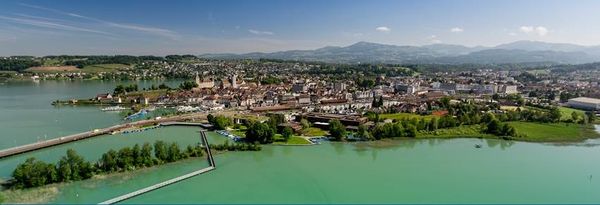 |
| This is the place to be at UNIGIS Day Switzerland! |
UNIGIS alumni Andreas Eisenhut gave a presentation about his every day challenges in a planning office. Interestingly, data acquisition and data accessibility are still significant bottle necks; especially in inter-cantonal projects. This is why he plead for more efforts being put into providing harmonized data as web services. Another important hint came from Dr. Keller from the canton of Zurich. He pointed to the fact that agencies which have large monetary turnovers are eager to adopt GI technologies for their systems because a minimum amount of increased efficiency leads to significant cost reductions in absolute numbers. Dr. Keller brought the example from subsidies in agriculture where the canton of Zurich pays an annual amount of 180 mio CHF to farmers. If GIS helps to improve the accuracy of the subsidized areas by only 1% the canton saves 1.8 mio CHF!
Both examples illustrate the potential benefits of a broad implementation of GIS know how which is the perfect argument for UNIGIS' offer of domain-independent, in-service GIS education.
The HS Rapperswill, the exclusive UNIGIS node in Switzerland, is the perfect place to make first steps into advanced GI applications. Courses taken within their post-graduate programs (CAS courses) can be credited for any UNIGIS study (electives). Furthermore HSR serves as first contact point in Switzerland for anyone interested in UNIGIS.

